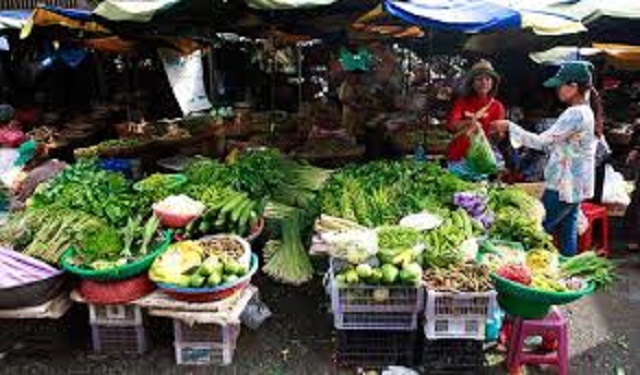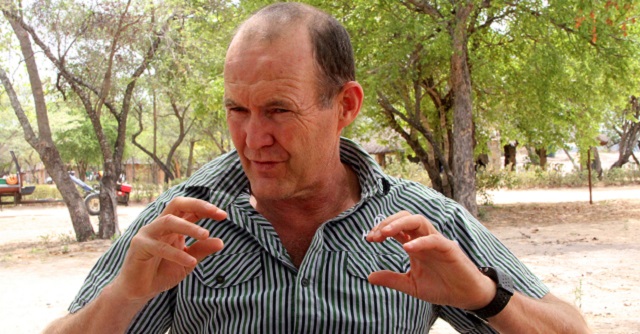The Sunday News

NAMING newly-born children has always been a sacred process in most African societies, such that most indigenous names of children tend to have intrinsic meanings and significance embedded in them.
Traditional African names often reflect circumstances at the time of birth, or refer to the time or day when the child was born.
Other names reflect the birth order of the newborn, while some names describe the parents’ reaction to the birth and others are descriptive of the newborn or of desired characteristics.
Some children were named after ancestors or elders in society whose characteristics were generally revered and the child would be expected to live up to them.
Historically, the different epochs that societies go through, have seen interesting names being coined; reflective of the period, either in celebration or mourning of the circumstances experienced.
Zimbabwe endured a protracted liberation war as black freedom fighters fought the white settler Government. A significant number of children born during this period were thus given names reflective of the bitter struggle for independence as parents expressed different sentiments towards the war.
Some names expressed wishes for independence, some urged the liberation fighters to fight on, some reflected an inherent desire for self-rule among the black majority, while some exuded the optimism indigenous people had as the war was drawing to an end.
Names such as Maqhawe, Nkululeko, Kurirai, Dingilizwe and Tongai among other such names are common among people who were born during the liberation struggle, at independence and just after independence.
Veteran journalist and social commentator Mr Saul Gwakuba Ndlovu said the trend of giving children names that were reflective of experiences and aspirations is inherently part of African societies from time immemorial.
Mr Ndlovu said from late 1959 when African Nationalism spread to Zimbabwe, most children born in the country were given various names that showed that locals had embraced the essence of nationalism and need for independence.
“Some children were even given names of African Nationalists such as Patrice from Patrice Lumumba, some were named Kwame from Kwame Nkrumah of Ghana. This was reflective of the nationalistic spirit that was sweeping across the country then at that time.
“Since ancient times, African names have always had meaning and it’s only now that we are seeing children being named simply because parents may love the sound of the name. Traditionally a person is given a name that has a meaning, one is either named after a character parents hope their children will live up to.
“Naming of newly-born children is an important and significant process in African societies. So you will find that most children born during certain periods have names reflective of significant events that could have occurred during that time. Those that were born during the liberation struggle had their names derived from the war, names that were reflective of what was going on during the war and so on,” he said.
Sunday News caught up with a few individuals who were born during the liberation struggle, at independence and after independence, who were given names reflective of the war, and discussed their names, the significance those names had to them and the relation of the names to what was going on during that period.
Born in 1980, with a unique name, is Nkayi district administrator Mr Zimbabwe Ndlovu. His name is unique for obvious reasons.
Mr Ndlovu believes his parents were overjoyed by the fact that the country had attained independence which had been yearned for for years, and the only way they could express the joy was to name their child Zimbabwe.
“I believe my parents were celebrating that finally the country had gained its hard-fought independence and decided to give me the name of the country as a way of celebrating this milestone.
“As you might know this is what most people do, that is when a major occasion takes place like the soccer World Cup for example they name their newborn children along the lines of that event. However, I am very proud of this name because I can boldly say I not only share a birth year with the country but I also share a name,” said Mr Ndlovu.
Veteran journalist Mr Nkululeko Sibanda was born on 26 October 1980, six months after the country got its independence.
Nkululeko is a Ndebele word that means independence and Sibanda believes his name indicated the celebratory mood that his parents were in after being blessed with a son in the same year their country attained self-rule.
“This was a decision that the parents obviously took to symbolise the country’s attaining its independence six months earlier, don’t forget that this was a time when everyone was in a celebratory mood, with some hardly believing that indeed independence had come hence my name Nkululeko.
“Although this was a decision entirely made by my parents, I stand today proud to have such a name as it constantly reminds me that I am part of a community that is forever grateful to the people who went out to the bush to fight for the liberation of this country. As I stand I represent more of a thank you token to all these freedom fighters,” said Mr Sibanda.
Mr Lizwe Jamela was born Dingilizwe Jamela in January 1980 in Mberengwa after ceasefire had been declared the previous year. Now a human rights lawyer based Bulawayo, Mr Jamela told Sunday News his father participated in the liberation war, and gave him the name Dingilizwe after returning from the bush and being blessed with a bouncing baby boy. The name was indicative of the purpose Lizwe’s father and many other liberation war fighters had gone to war for.
Dingilizwe, translated to English means “search for the country”, which was the reason his father and fellow liberators had taken up guns against the white settler regime.
“My name was later shortened to Lizwe because my parents felt that I would have problems writing it at school. I never used to like the name at first as it evoked sad emotions but with time I managed to get over it. Now I’m proud to have such a name maybe because I’m a little mature now. I feel honoured to have such a name which symbolises the ushering of the country’s freedom. I guess it was double joy from my parents, having their son’s birth coinciding with the country’s independence,” he said.
Mr Freedom Mupanedemo, just like Mr Jamela was born in July 1980 in Mberengwa, three months after the country celebrated independence. His father was also a liberation war fighter and named his son Freedom, to celebrate the freedom that had been brought by the liberation war.
“During that period, I’m told, the country was still in a celebratory mood after attaining independence from the Rhodesian government. As a way of celebrating the independence, my parents gave me that name. It is an honour to have such a name that is significant to the attainment of independence, I feel proud.
“To some extent that name influences the sense of patriotism that is in me,” he said.
Mupanedemo is a journalist with ZimTravel magazine, a tourism magazine under the Zimpapers family, having started his career with the Chronicle as its Midlands correspondent.
Mr Kurirai Chakanyuka, a teacher at Chironde in Shurugwi rural in the Midlands province was born on July 10 1979. During this period optimism of winning the war had gathered current among the black population as they felt the pendulum was now titling in their favour.
A group of liberation war fighters passed through the Chakanyuka homestead in Chirumanzu district in the Midlands province, a few days after the family had been blessed with a bouncing baby boy.
The family, Sunday News was told, Christened their new addition Kuriraimabhunu, as a message of encouragement to the liberation war fighters to continue fighting and defeat the white settler government.
Kuriraimabhunu, loosely translated to English means “defeat the whites”.
“My name was later shortened to Kurirai when my parents got my birth cirtificate, but the meaning remains the same. It was a dedication to the liberation fighters urging them to defeat the colonialists.
“I guess my parents felt that liberation was now closer and they were so optimistic that the war would be won. I feel happy to have such a unique and significant name, a name that bears such an intrinsic meaning,” he said.
Mr Maqhawe Sibanda, the Zanu-PF Bulawayo province youth wing secretary for transport and welfare, was born on 10 August 1983, three years after the country got its independence. Both his parents participated in the liberation war and as a way of honouring their gallant counterparts in the war they named their son Maqhawe, which is a Ndebele name for heroes.
“Of course it is an honour to have such a name. It gives me a sense of obligation to be patriotic in honour of the liberation war cadres after whom I was named. Actually the name is what inspired me to get into politics,” he said.
Although he was born three years after independence, his name remains among those unique names that are indicative of the joy that swept across the country after attainment of independence.
There are several other names with similar significance, names such Sizanqoba, Sibangilizwe, Sinqobile, Tichakunda, Tichatonga, Tongai, among a host of such names that tell an interesting story of how Zimbabweans reacted to the liberation war and the attainment of independence.



